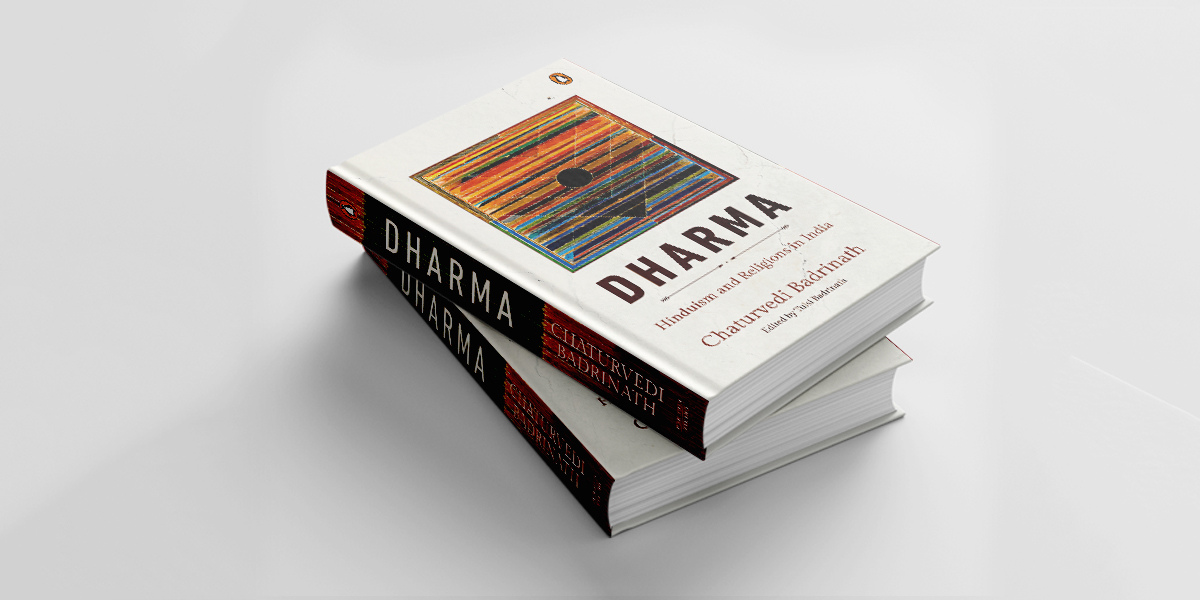
Chaturvedi Badrinath’s Dharma, edited by his daughter Tulsi Badrinath, is a comprehensive study on the concept of dharma. In this book, Badrinath actively dwells on the questions of Indian civilization, components of dharma and the contentious origin of the words ‘Hindu’ and ‘Hinduism’. Central to the perception of what substantiates dharma is the differentiation between ‘dharma’ and ‘religion’. The author iterates the error in the identification of the two terms that has come about over a span of time and emphasises that the two concepts have no point of intersection.
Here are a few pointers that illuminate how the question of religion is entirely different from that of dharma, in order to give you a head start into the book:
The author defines religion as a central belief system, where God is understood to be the creator of the universe and where there are scriptures and commandments illuminating the teachings of God. Dharma on the other hand, is unique in its understanding. It is the Indian understanding of Man and the way of the civilization that existed around him.
~
The terms ‘religion’ and ‘dharma’ are untranslatable as they both belong to different cultures. The concept of religion came with the Catholic missionaries of the sixteenth century whose minds were ingrained with the understanding that religion is a unified system of beliefs of a community. However, dharma carries with it, a comparatively freer flowing concept which is central to the Indian thought of exploring the identity of Man. The concept of a ‘Hindu’ religion and ‘Hinduism’ itself is a false one constructed by the western thought in an attempt to quantify the Indian way of life.
~
In the Atharva Veda, dharma is described as the “oldest customary order”. Unlike the concept of religion, dharma does not relate to a divine revelation or faith, it concerns itself with the questions of human life and the reality possessing it.
~
The concept of transcendence is quite central to the understanding of dharma as opposed to the understanding of religion. Following this principle, it is derived that dharma does not encourage the binaries of good and evil, natural and unnatural or even human or inhuman, as in the case of religion. All the binaries are transcended into the realisation that these are merely just experiences in the wholesome comprehension of human life.
Thought provoking, perceptive and challenging many long-held notions, Dharma is a must-read for anyone who is interested in India, the interaction of different religions over centuries in this land, and the underlying unity of all life.









